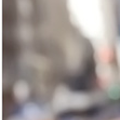During a recent episode of the ABC News show 20/20, reporters shadowed law enforcement officers in the Raleigh, N.C., area to monitor their speeding. Since most of the officers they spotlighted on the show were not from the Raleigh Police Dept., the segment wasn’t an exposé on that agency, but rather an overview of how many different agencies were breaking the law for reasons that had nothing to do with their mission.
I live in North Carolina and have been to the state’s capitol city many times. Raleigh is where the state lab is located, along with several major prisons. Law enforcement officers are always on the road to and from Raleigh. And, if you are to believe ABC News, most of them speed.
Among the officers or officials caught exceeding the speed in nonemergency situations were individuals delivering evidence, picking up prisoners, returning to their duty stations, reporting to a training academy and, in one unfortunate made-for-TV-moment, going to a donut shop. Almost everyone caught speeding spoke to the news crew—at least until they realized why the crew wanted to talk to them. In one case, a supervisor reported that his agency was taking a further look at the incident.
Here’s the raw truth: Cops speed. Not all the time, and not necessarily every cop, but I can tell you that I have had more than one officer blow by me while I’m in my personal vehicle and I am not naïve enough to believe that every time this happens, that officer is on his or her way to a call.
Yes, police often have the need for speed. And, personally, I think it’s little more than a CYA when in-house operations manuals limit those speed limits to 10 miles above the posted speed (or whatever the agency’s attorney or accreditation team suggests). Any officer responding to an officer down call will shred that suggested run speed without so much as a second thought. And as sensational and ridiculous as the ABC News piece was, there really was a valuable lesson buried inside it: The public is always watching you.
A cop who breaks the law because he can is no better than the people he or she puts in cuffs or gives citations. It’s up to police to not place themselves above the law, but to enforce it equally, which means that they abide by the same laws they expect the public to respect. Not to do so creates a special police class and we’ve seen what disregard for our place in society has led to in the past. There’s a good reason we have checks and balances in place: They help prevent abuse of power.
But I’ll admit that it’s easy to fall prey to the control and influence that come with the badge. What other job imbues ordinary human beings with the right to remove another person’s freedom, often based on little other than his or her word? It’s an awesome and frightening gift and it’s up to those who wear the badge to make sure it’s a privilege that’s never abused.
Police should exhibit command presence, but never should they substitute rudeness for authority. And they should never believe, even for one second, that the laws they enforce place them above either the law or other people. There is no quicker road to undermining the public’s trust than to believe that simply because you have a badge and a gun, normal conventions do not apply.
The laws we enforce apply to everyone, including us. And that’s something those with truly successful careers in criminal justice never forget.
About the Author

Carole Moore
A 12-year veteran of police work, Carole Moore has served in patrol, forensics, crime prevention and criminal investigations, and has extensive training in many law enforcement disciplines. She welcomes comments at [email protected].
She is the author of The Last Place You'd Look: True Stories of Missing Persons and the People Who Search for Them (Rowman & Littlefield, Spring 2011)
Carole can be contacted through the following:
- www.carolemoore.com
- Amazon author page: http://www.amazon.com/-/e/B004APO40S